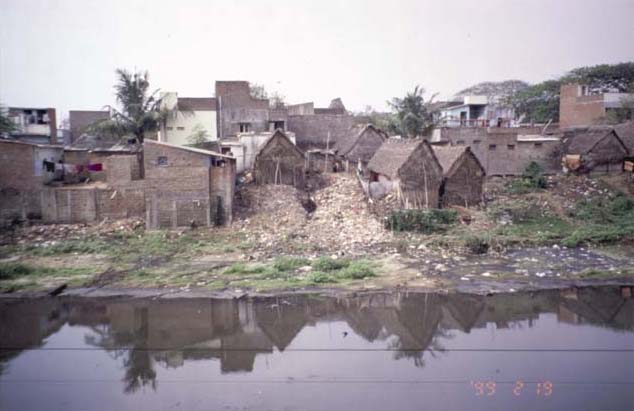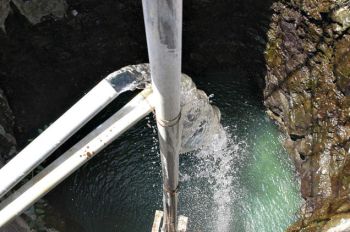/regions/bangalore-urban-and-rural-district
Bangalore Urban and Rural District
An openwell as a source of water in Bangalore city
Posted on 27 Jun, 2011 04:48 PMFive years of special economic zones in India' - lecture by Dr. Partho Sarothi Ray, National Institute of Advanced Studies, June 27, 2011, Bangalore
Posted on 23 Jun, 2011 05:11 PM Organizer: National Institute of Advanced Studies
Organizer: National Institute of Advanced Studies
Venue: Lecture Hall, NIAS, IISc Campus, Bangalore
Description:
Five years have passed since the first United Progressive Alliance (UPA) government passed the Special Economic Zones (SEZ) Act in 2005. Altogether there are around 1200 SEZs in different phases of development today. Analyzing the development and distribution of SEZs in different parts of India in the last five years gives us some ideas about the political geography of special economic zones in India.
This talk will draw on this analysis and the personal experience of the speaker in struggles against various SEZs in India including the proposed POSCO SEZ in Orissa which has received a very strong farmers’ resistance.
Soil biotechnology installation and water interventions at ACCEPT Society, Bangalore - Videos by Arghyam
Posted on 23 Jun, 2011 12:15 PM
Water interventions in the society
The society is an AIDS care hospice of about 5 acres, on the outskirts of Bangalore.
Student Conference on Conservation Science – Bangalore 2011, September 14 – 16, 2011, Indian Institute of Science, Bangalore
Posted on 23 Jun, 2011 12:13 PMOrganizer: Student Conference on Conservation Science, IISc
Venue: JN Tata Auditorium, Indian Institute of Science, Bangalore
Description:
The Student Conference on Conservation Science (SCCS) – Bangalore brings together young researchers in conservation science to facilitate interaction, encourage exchange of research ideas and methods, and help build contacts and capacity. SCCS-Bangalore focuses on attracting students primarily from countries in South and South-east Asia.
Urban floods in Bangalore and Chennai – Risk management challenges and lessons for sustainable urban ecology – A paper in Current Science
Posted on 22 Jun, 2011 10:23 PM Two important metro cities of India, viz. Bangalore and Chennai are discussed. The aim of the study was to understand the problems of increasing flooding incidences in urban areas and related contexts of urban development and ecological issues. Data of secondary origin have been collected and interpreted in the context of flood risks and urban management. The paper also conveys wider issues and lessons for flood challenges in Indian cities and towns.
Two important metro cities of India, viz. Bangalore and Chennai are discussed. The aim of the study was to understand the problems of increasing flooding incidences in urban areas and related contexts of urban development and ecological issues. Data of secondary origin have been collected and interpreted in the context of flood risks and urban management. The paper also conveys wider issues and lessons for flood challenges in Indian cities and towns.
A citizen initiative to save Puttenahalli Lake in JP Nagar, Bangalore
Posted on 22 Jun, 2011 11:50 AMResidents of L&T South City and Brigade Millenium in JP Nagar, Bangalore formed a citizen initiative to save the neighbouring Puttenahalli Lake from becoming a dumping ground for construction debris and waste. A team from India Water Portal visited the lake in June 2011 to see the progress and challenges faced by such citizen initiatives.
Managing shallow aquifers in a city
Posted on 16 Jun, 2011 06:04 PM Good option: The city needs multiple sourcing of water and open wells have the potential to provide up to a third of the requirement
Good option: The city needs multiple sourcing of water and open wells have the potential to provide up to a third of the requirement
Just how a city can be arbitrary with its policy on water management and therefore leading to sub-optimal conditions is made clear by a recent example one came across. Balasubramanian had an old open well dug to a depth of 30 ft. when he first built his house in the early 80s. The well had yielded water for quite some years but then subsequently had gone dry.
Water Stories by talking history' - A series of films capturing water practices and rituals in Bangalore
Posted on 14 Jun, 2011 02:42 PMTalking History is an inter-collegiate course on Oral History offered at the Srishti School of Art, Design and Technology in Bangalore, India. The films were made between February - March 2011.
Doddabommasandra lake
Doddabommasandra lake is located close to B.E.L circle in an area called Doddabommasandra in Bangalore. This film endeavours to portray the story and memories of drying up of Doddabommasandra through two different viewpoints. The story reflects the pattern in which we are exploiting and losing our water resources.
A short film by Gautam Vishwanath and Kinshuk Surjan
‘Public spending and its effectiveness: Selected studies from Karnataka’ - One day seminar on health, education, water and local self-government, CBPS, 25th June, 2011, Bangalore
Posted on 13 Jun, 2011 02:09 PM Organizer: Centre for Budget and Policy Studies (CBPS)
Organizer: Centre for Budget and Policy Studies (CBPS)
Venue: White House, The Hotel Capitol, Raj bhavan Road, Bangalore
Topics:
- Health
- Education
- Drinking water
- Decentralisation